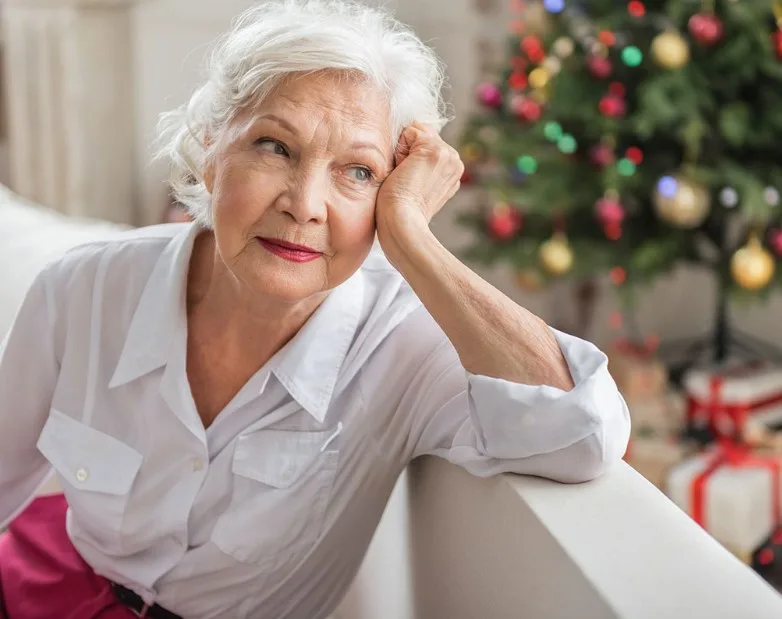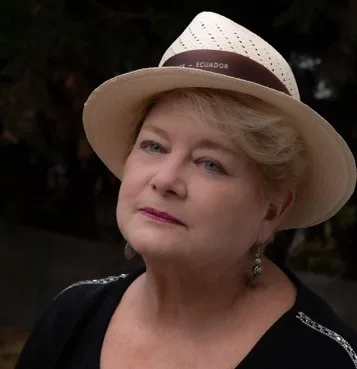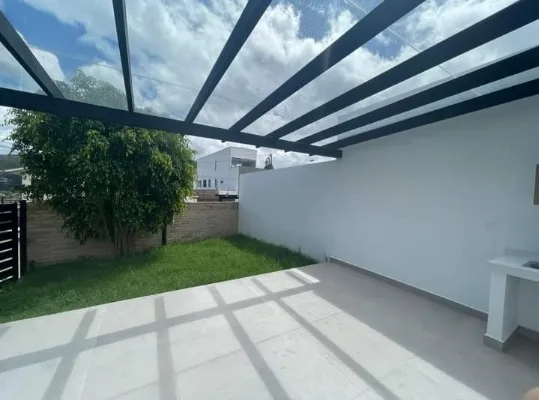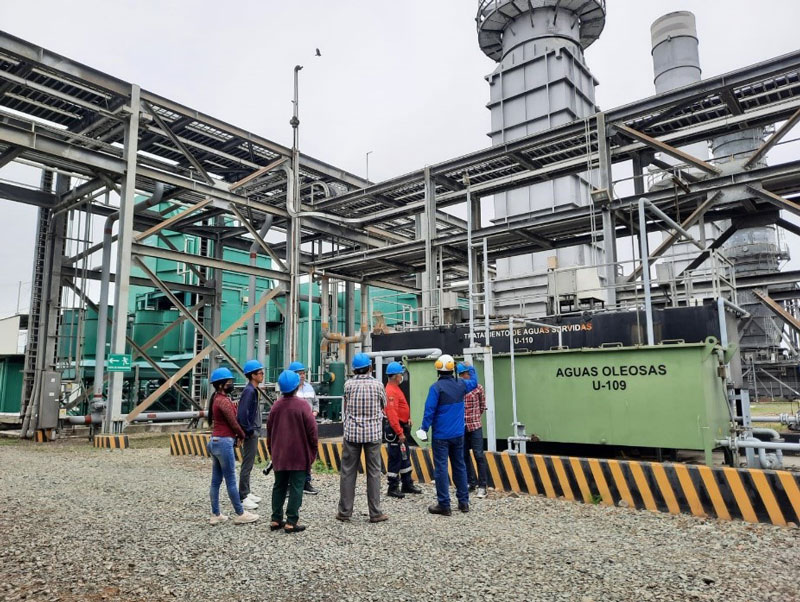If this is the season of joy and good cheer, why are so many people SAD?
By Garnett Stewart
Are you feeling sad? At this time of year, there are a lot of SAD people!
 What I am talking about, of course, is Seasonal Affective Disorder, commonly referred to by its initials, S.A.D., and several of my acquaintances tell me that they suffer from it this time of year.
What I am talking about, of course, is Seasonal Affective Disorder, commonly referred to by its initials, S.A.D., and several of my acquaintances tell me that they suffer from it this time of year.
S.A.D. is one of several subtypes of Cognitive Depression. In our Ecuadorian environment, insurance companies provide no coverage for mental health. Inside IESS, the best option for mental health is psychotherapy with a Spanish-speaking therapist. This practitioner is unable to provide medications and will refer you to General Medicine. Depending on the doctor’s comfort level, you may be referred to Internal Medicine or Gerontology to obtain a prescription for a drug that is not an IESS medicine. We all know how tough it is to obtain an appointment, and the ER will send you to other departments for follow-up months later.
Knowing this, you should also be aware that you can get it over the counter here. My concern is that North Americans would seek a pill-based answer to a problem that requires numerous elements for good management. I strongly advise you to seek medical advice rather than self-medicate!
 I searched online and discovered that the usual price of Zoloft, a popular antidepressant, is more than a dollar per tablet. That is only one common example.
I searched online and discovered that the usual price of Zoloft, a popular antidepressant, is more than a dollar per tablet. That is only one common example.
If you want this assistance, it is usually paid for privately, and therapists in English appear to charge around $40-50 per session. Therapists went virtual during Covid, and many now utilize online meetings for their appointments. Cuenca has English-speaking resources; however, they might be pricey. Then all drugs are paid for privately. My indignation is that when individuals are emotionally weak, receiving treatment is costly, complicated, and tough to locate the correct adviser.
But here’s the exciting news! S.A.D. and depression both respond to alternative treatments. Actually, both require more than simply medications for therapy.
Why is the term S.A.D. used? What is the source of this? Our biological clock is governed by biorhythms known as circadian rhythms (which run in a cycle). Decades of research have shown that if a person is placed in a room without windows and subjected to continuous artificial lighting, they would have a wake period of 14-16 hours and a sleep time that coincides in only a few days. This clock governs our every move throughout the day. It’s not precisely 24 hours, but it is very close. This is a powerful mammalian biological rhythm. Large animals hibernate to store bodily energy rather than use it to keep warm and active. Remember that we are very large animals!
This internal clock is extremely sensitive to external influences. We are energized by sunlight, daytime, and nightfall in our normal lives, when not in a limited and control room. Isn’t it plain what does what? People who are not unwell require daily indoor and outdoor time, or at the very least draperies open and closed. People who are really sad prefer to hibernate, which is precisely the worst thing to do. Depression causes you to “hibernate” and fosters additional depression. We spend our days in cycles. Many people spend their entire lives trapped in vicious loops.
Sunlight is an important source of Vitamin K, and it is advised that we get 20 to 30 minutes of outdoor stimulation every day. But, because we are so near to the sun in the sierra, remember that you need sunscreen. The sun activates this on/off switch.
Let us all agree that we all experience grief at times for a variety of causes, and that this sadness is amplified over the holidays. We might not be overjoyed when we hear Santa shout Ho Ho Ho.
Depression is particularly frequent with illnesses. Fear of being sick. Pain phobia. The fear of dying. All of these factors, and more, contribute to the impulse to hibernate. In this scenario, I repeat that if some is good, MORE is NOT necessarily better. A close buddy was diagnosed with cancer and required surgery. He became so sad that he stopped eating and drinking, reversed his days and nights, and suffered. He grew dehydrated and miserable. Nonetheless, he was cancer-free and should have been the happiest patient in town. Even before the procedure, he was in a deep hopelessness. He was too proud to write his final memoirs before he died. I saw it and expressed my deep concerns. His doctors missed the symptoms.
In his recovery, I proposed the following adjustments and was refused. Sometimes despair stops people from changing on their own, and they require a leader to drive them towards the light. And some individuals are trained to relish their misery. Suffering fulfills a personal need to be the focus of attention in a profoundly self-destructive way. Have you ever heard a Latina express how much she suffered when (whatever happened) occurred.
Suffering is also cultural. We healthcare professionals of various educational backgrounds understand that it is nearly reversible with a few easy modifications that do not need medications. At the outset of depression, there is a great need to overcome it before it becomes chronic.
As a Nurse Practitioner I was dismissed because I was not a medical doctor. Yet his medical staff missed this not once but several opportunities to assess this depression. Not one physician saw it and nothing was done.
The first stage of rehabilitation is admitting that there is a problem. This is also the first step in any rehabilitation program I’ve come across. Al Anon and AA. The list is extensive.
Observations, not sphygmomanometers or thermometers, are used to assess mental health. Listening is required. Treatment is often a change in lifestyle.
In the United States, we say, “If it walks like a duck and quacks like a duck, it’s a duck.” Depression is visible to untrained eyes as well. However, many people ignore these warning signals and create justifications for their actions. “Oh, that’s just her.:” So perhaps she is habitually sad.
It is a significant medical illness that can lead to a variety of medical illnesses and at worst, suicide.
When to See a Doctor
I included this part now for the male readers since they want the option as soon as feasible and may quit reading here. Please read on!
It’s common to have low days from time to time. However, if you’re feeling depressed for days at a time and can’t get inspired to do things you generally love, consult your doctor.
Who is that person in Ecuador? Because depression can and frequently has organic causes, the first three providers are general medicine, internal medicine, and gerontology. It is not necessarily an emotional issue. The organic cause should be investigated before it is labeled mental health issues.
After surgery, my buddy saw his surgeon, who totally ignored the depression and treated the dehydration with IVs. He may not have been educated to recognize this emotional reaction and hence missed the cause. That is heinous, yet it happens all too frequently.
This is especially crucial if your sleeping and eating habits have altered, and you resort to alcohol for consolation, and you feel hopeless, or you consider suicide. Some believe that drinking alcohol would soothe the worries, cure your troubles, but this is not the case. Alcohol is a stimulant at first, but quickly becomes a profound depressive. No drinking alcohol! It is stated that 63% of alcoholics suffer from major depression disorders.
According to the Mayo Clinic, the following are the characteristic symptoms of depression:
Symptoms
In most cases, symptoms of sadness and seasonal affective disorder occur in late autumn or early winter. They disappear over the summer, indicating that the cause is sunshine and circadian cycles. IN the northern hemisphere, it is Fall and Spring. The Southern Hemisphere reflects the same trends just different months, of course.
SAD will go away with the seasonal change to warmer weather. But, like with anything human, nothing is completely universal for everyone. People with SAD who have the opposite pattern seldom show symptoms in the spring or summer.
In any scenario, symptoms may begin modest and worsen as the season advances.
- Feeling listless, sad, or down most of the day, almost every day • Losing interest in activities you once enjoyed • Having low energy and feeling sluggish • Having problems with sleeping too much and irregular patterns • Experiencing carbohydrate cravings, overeating, and weight gain or not eating and weight loss • Having difficulty concentrating • Feeling hopeless, worthless, or guilty My addition to Mayo’s list: addition: Take note of the well-known life triggers such as divorce, deaths, major relocations, loss of significant others, loss of funds, face-to-face loss of friends, and the stress of a new life. That collection applies to all expats. We’ve left home, and now we’re confronted with all these triggers.
However, because we reside on the Equator, the sun to nighttime trigger is not entirely relevant. Or is it? Latinos regularly raise their drapes around daybreak to let in light. We tend not to do this when we are depressed. We can be inventive, and even at the equator, we can mimic darkness.
SAD in autumn and winter
Symptoms that appear only in the winter S.A.D, often known as winter depression, can cause: • Oversleeping • Appetite changes, particularly a need for carbohydrates • Weight gain • Tiredness or poor energy levels
Consider the bear. He hibernates and prepares for it by gaining weight in preparation for a long slumber. We tend to do this as animals, but job and family obligations prevent us from doing so.
There are a few people who have the opposite ailment, which shows how sensitive humans are to even minor changes in light. Personally, I believe that being attentive to these changes is more than just a few people, but rather the norm. It takes a 15-minute sunlight flux to create this depression in many people. Consider daylight savings time and the many who are triggered with time changes!
SAD in the spring and summer
Summer-onset seasonal affective disorder, often known as summer depression, can cause the following symptoms:
• Trouble sleeping (insomnia) • Poor appetite • Weight loss • Agitation or anxiety •heightened irritability
Causes
- Your biological clock (circadian rhythm) is one aspect that may come into play.
- Levels of serotonin. SAD may be caused by a decrease in serotonin, a brain chemical (neurotransmitter) that modulates mood. Serotonin levels might diminish when there is less sunshine.
- Melatonin concentrations. The changing of the seasons might upset the body’s melatonin equilibrium. When there is less sunshine, we produce less melatonin.
Risk elements
Women are more likely to be diagnosed with seasonal affective disorder. 40% more frequently! And the younger you are, the more common it is.
- A family tree. People who suffer from depression or SAD are more likely to have family relations who suffer from SAD or another kind of depression. We do inherit our biochemistry from our families, and environmental influences are also prominent.
- Suffering from serious depression or bipolar disorder. Seasonal affective disorder (SAD) and depression in general may worsen.
- Residing far away from the equator. This is for those you know who live in foreign nations. If we improve our availability to sunshine, we should not consider this a trigger. Draw the draperies open. Take walks. Sit in the shade and soak up the healing rays of the sun!
It is worth noting that SAD appears to be more frequent among those who reside far north or far south of the equator. In Alaska, the prevalence is around 42%. In the United States, the prevalence is around 5%.
- Low vitamin D levels. When exposed to sunshine, the skin produces some vitamin D. Serotonin activity can be increased with vitamin D. Low vitamin D levels in the body may come from a lack of sunshine and a lack of vitamin D from meals and other sources. Also, the one common defect in Covid deaths were the absence of Vitamin D. If you supplement, as I do, take the Vitamin D3 and Calcium with milk apart from the rest of your medications to ensure proper absorption.
Prevention
According to the Mayo Clinic, there is no documented preventive, just symptom treatment. I strongly disagree.
The key here is to maintain a consistent lifestyle and to be kind to yourself.
- Eat healthily and avoid non-essential medicines.
- Drink plenty of water and remain hydrated. The minimal quantity of fluid ounces required everyday equals weight in pounds divided by half. I drink 4 liters of water every day here near the equator, especially if I don’t consume a lot of fruits. Yes, a GALLON.
- Sleep at the same time every day and disconnect from technological stimulus one hour prior. That includes your phone, computer, music, and television. The old adage about reading an hour before bedtime works here. Create a calm sleeping environment and sleep at the same time every day.
- Many retirees do not set an alarm, which could prove to be a really bad decision.
- The foundation for good mental health is deliberate schedule setting. Our parents did this for us, and we eventually lost this healthy habit. When I was working, my long days meant short nights. Sleep and dream time are reduced. It’s no surprise that mental illness is so widespread among healthcare practitioners. Instead of making this a typical pattern for your medical professionals, we expect this to be undesirable. My interns are really messed up right now!
That are depressed and exhausted.
- Exercise on a regular basis, preferably every day. Even chair workouts have helped me become more “me” while I recuperate from knee trauma.
- Find some tranquility. Seek for calm folks and avoid Spirit VEXATIONS. 1692 Desiderata. Please read this poem if you are unfamiliar with it. This is available to view in all of my residences across the world. I sometimes forget to read to myself.
Prevention
There is no known technique to prevent seasonal affective disorder from developing. However, if you take actions to treat symptoms early on, you may be able to avoid them from worsening over time.
Early intervention: Because you can foresee the time of year, you may be able to avoid major changes in mood, appetite, and energy levels. Treatment can help avoid consequences, especially if SAD is identified and treated before symptoms become chronic.
Some folks start their therapy early. This is what I propose. A light box is useful in seasonal settings, but in Ecuador, simply spend 30 minutes outside each sunny day or even cloudy day.
Complications
Take depression and SAD indications and symptoms appropriately. Complications might include:
- Social disengagement
- School issues if not handled
- Work issues
- Social isolation
- Substance abuse • Other mental illnesses
- Stress
- Eating disorders
- Suicidal ideation or behavior
- Death
Most ailments are fueled by a poor diet. The Mayo Clinic classified it as a weapon of mass destruction.
We lived a very quick life in the states, and the speed frequently precluded successful and healthful intake. McDonalds and other fast-food restaurants are a cause of numerous ailments. With fast food and store shelves piled high with processed meals to lure us, we must make healthy eating our business. We must feed and treat this amazing mechanism of the human body with optimal selections during all situations.
Have a wonderful Holiday season. Try to return to your normal routine as quickly as possible while still having fun. Life should be enjoyed. Go ahead and gain those 5 pounds but lose that weight by early 2024. Be your own best friend and take care of you. Please!
__________________
 Garnett Stewart is a permanent resident of Ecuador. She is a retired Adult Medicine Nurse Practitioner with a specialty in Cardiology and Cardiovascular Surgery and is the author of several published articles. She holds Bachelors and Masters degrees in nursing. Her undergraduate university studies focused on biochemistry and biophysics. She can be contacted at Ecuador.advice@gmail.com
Garnett Stewart is a permanent resident of Ecuador. She is a retired Adult Medicine Nurse Practitioner with a specialty in Cardiology and Cardiovascular Surgery and is the author of several published articles. She holds Bachelors and Masters degrees in nursing. Her undergraduate university studies focused on biochemistry and biophysics. She can be contacted at Ecuador.advice@gmail.com


















